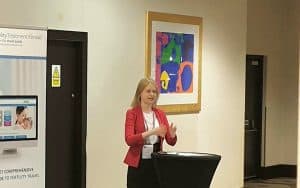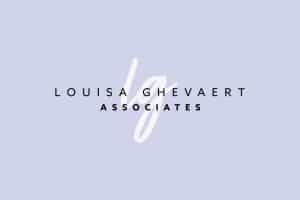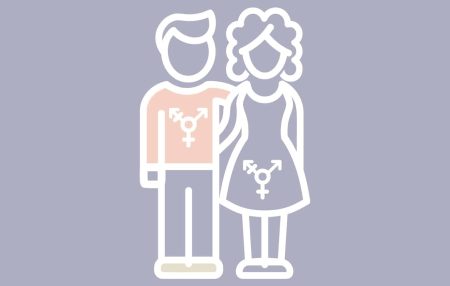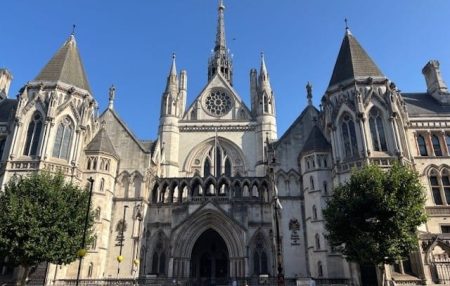23 December 2024
An article in The Telegraph (1) on 20 December 2024 has reported concerns by two individuals about early UK fertility clinic practices, having recently discovered that they share the same secret sperm donor; a scientist in charge of the laboratory in the 1970’s on the floor above UK IVF pioneer Patrick Steptoe’s clinic at Oldham Hospital. Fifty years on, this has come to light after both individuals registered for DNA tests on Ancestry.com, reportedly raising concerns about whether their mothers were unknowingly impregnated without their consent with donor sperm.
David Gertler and Roz Synder, both in their 50s, reportedly discovered that they are half-siblings and have the same biological father after registering for DNA tests on Ancestry.com, which matched them with the former chief laboratory scientist at Oldham Hospital. Following this, the scientist reportedly went on to tell Roz over a WhatsApp message that Steptoe “used sperm from lab staff, medical students and doctors… But no records of any were kept”. Furthermore, it is reported that at least two other women were impregnated with the same laboratory scientist’s sperm and that one of the children born is still unaware fifty years later of the true identity of his biological father. The Telegraph article goes on to report “paperwork has seemingly been destroyed or is missing, including any evidence of the treatment received by Roz and David’s parents in the early 1970s”.
The article in The Telegraph also reports that neither the official keeper of records about Steptoe’s pioneering fertility work nor Steptoe’s own son were aware of any donor sperm inseminations carried out by Steptoe in his fertility clinic in Oldham. In addition, the article reports Roz’s father “apparent ignorance that he was infertile” and lack of awareness about official adoption law in the 1970s which was required for the husband to be named on the birth certificate following sperm donation. Furthermore, the article reports that both David and Roz consider it strange that their parents referred to them as “miracle Steptoe babies” if they had been aware of sperm donor insemination and wanted to keep it secret, with Roz telling The Telegraph: “Something definitely doesn’t add up. All the research I have done, spending night after night on the internet. I can’t find anywhere that Dr Steptoe did artificial insemination. It has been life-changing. It has given me an identity crisis. Who am I? I just don’t know. There have been so many tears. So much crying. i just found our my dad’s not my dad”. Moreover, the article reports David’s feelings that: “Your foundations completely shift. You feel you don’t belong as much. I’ve almost got imposter syndrome. My instinct is they [my parents] were never told”.
The Telegraph article reports that David and Roz both point out that inseminations with donor sperm were unregulated in the UK in the early 1970s. Accordingly, any resulting births should have been registered “as of illegitimate birth, father unknown”, with subsequent adoption proceedings lasting several months. Additionally, Roz points out: “David and I are not adopted and our birth certificates were registered with both parents’ names within days” with David reported as saying “Ignoring adoption laws at the time may explain the lack of valid consent. Following consent rules but violating adoption laws could have been incriminating”.
The Telegraph article goes on to say that an IVF expert who worked with Steptoe at the time took the view that it was very unlikely that Steptoe carried out any ‘straightforward’ donor sperm inseminations (for identified male infertility) given his busy gynaecological workload, including laparoscopies, at the time and that any such cases would have been referred elsewhere and done “strictly legitimately and ethically, with patient consent”. However, the article then proceeds to report the former chief pathology scientist at Oldham Hospital told Roz in messages that Steptoe organised a sperm bank which was kept in the laboratory. The article goes on to refer to further messages in which the scientist was reportedly “…insistent that Roz’s parents would – he was sure – have known about the donor insemination. He suggested that in those days, Steptoe mixed sperm from the father with a donor’s to see what happened” and “…But what went on in the consultants room would stay in the same room! So who knows if they were given the choice!!!”. The article reports a further response from the laboratory scientist saying “You say your mum was referred to Steptoe, he was a gynaecologist and looking at infertility! As it was in those days! In its infancy. So I say again he would talk to both people, explain and take it from there! He was the only one I knew dabbling in this field”.
Direct-to-Consumer DNA Testing
David and Roz’s cases palpably demonstrates the importance for individuals to give really careful consideration before taking an at-home DNA test as it can lead to all manner of unexpected discoveries and complex legal issues. The article in The Telegraph reports that David sadly ‘blames himself’ for discovering the truth about his biological father following a Black Friday sale on Ancestry.com. It reports that David and his business partner had “ordered a few kits” and given them as presents to colleagues in the office and that David had been “fascinated” by his Hungarian heritage and had wanted to learn more. However, as David’s story shows, an interest in personal ancestry and heritage and the results of at-home DNA tests through companies like Ancestry.com and also 23andMe can lead on to discoveries which can be deeply shocking and raise challenging legal and practical issues about parentage and birth certificates. As the article in The Telegraph goes on to report in Roz’ case she received her Ancestry.com results on 25 January 2024 and that ‘“It’s a date I will never forget”… tears streaming down her cheeks. Her husband describes her reaction when she clicked on the Ancestry,com email. “She was wrecked, terrible” he says”.
At-home DNA tests, like those offered by Ancestry.com have already been undertaken by tens of millions of people worldwide, with 25 million people on Ancestry’s DNA database alone. They can lead to discoveries that the person someone thought was their parent was not their biological father or mother. They can uncover hidden adoption, unknown siblings and genetic relatives, secret love affairs, fertility fraud, IVF mix-ups, donor conception and even prolific serial sperm donation. These discoveries can literally rock the foundations of people’s lives and personal identity. They can undermine trust in loved ones and family relationships. They can change established family history, create uncertainty, overwhelm people and upend people’s lives and require expert management to deal with the ramifications in practice. Additionally, at-home DNA testing continues to be a rapidly evolving area that raises ongoing issues about the accessibility, usage and security of people’s personal DNA information as well as the potential implications in the short, medium and longer term which have yet to be fully understood or clarified (including from a personal autonomy, health, safety, career and wider legacy perspective).
Direct-to-consumer DNA test results can also create all manner of complex issues and legal proceedings to:
- Legally clarify and determine an individual’s biological parentage (e.g. seek a formal court order for DNA testing and a Declaration of Parentage).
- Legally determine and recognize an individual’s legal parenthood.
- Rectify an individual’s birth certificate (e.g. add or remove a parent’s name).
- Legally resolve a paternity dispute (i.e. following sperm donation, IVF mix-up, issues with natural conception).
- Legally resolve legal parenthood of a non-birth parent for their child following errors in completion of HFEA consent forms at UK fertility clinics.
- Resolve a dispute about paternity/legal parentage and financial provision for a child or individual.
Footnotes:
(1) Mendick Robert, “The IVF pioneer, the secret sperm donor – and the lives torn apart”, 20 December 2024,The Telegraph, https://www.telegraph.co.uk/news/2024/12/20/revealed-inventor-of-ivf-secretly-used-sperm-donors/.
Images: Louisa Ghevaert, CEO and Founder Louisa Ghevaert Associates
To find out more about Louisa Ghevaert click here.







